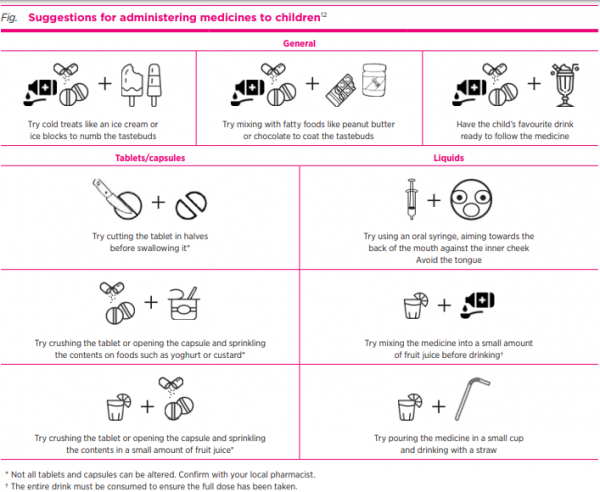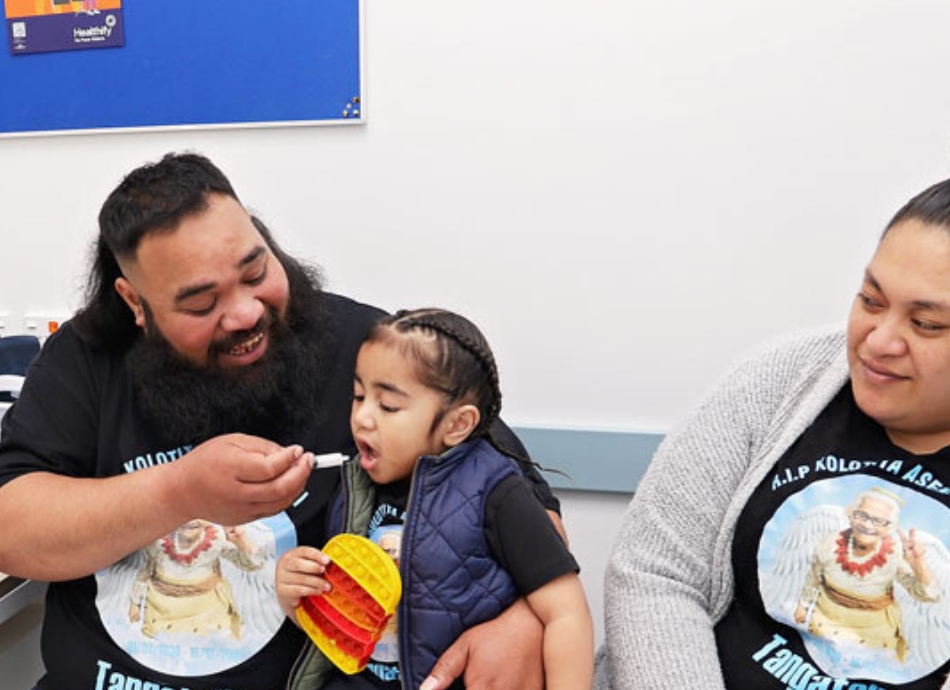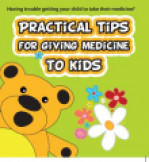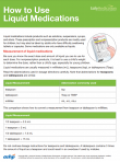Forcing your child to take their medicine can lead to fear, vomiting, choking or injury. Talk to your child about their medicine and let them know it will help them feel better.
Always store medicines out of reach and out of sight of children.
Image credit: Australian Prescriber(external link)









